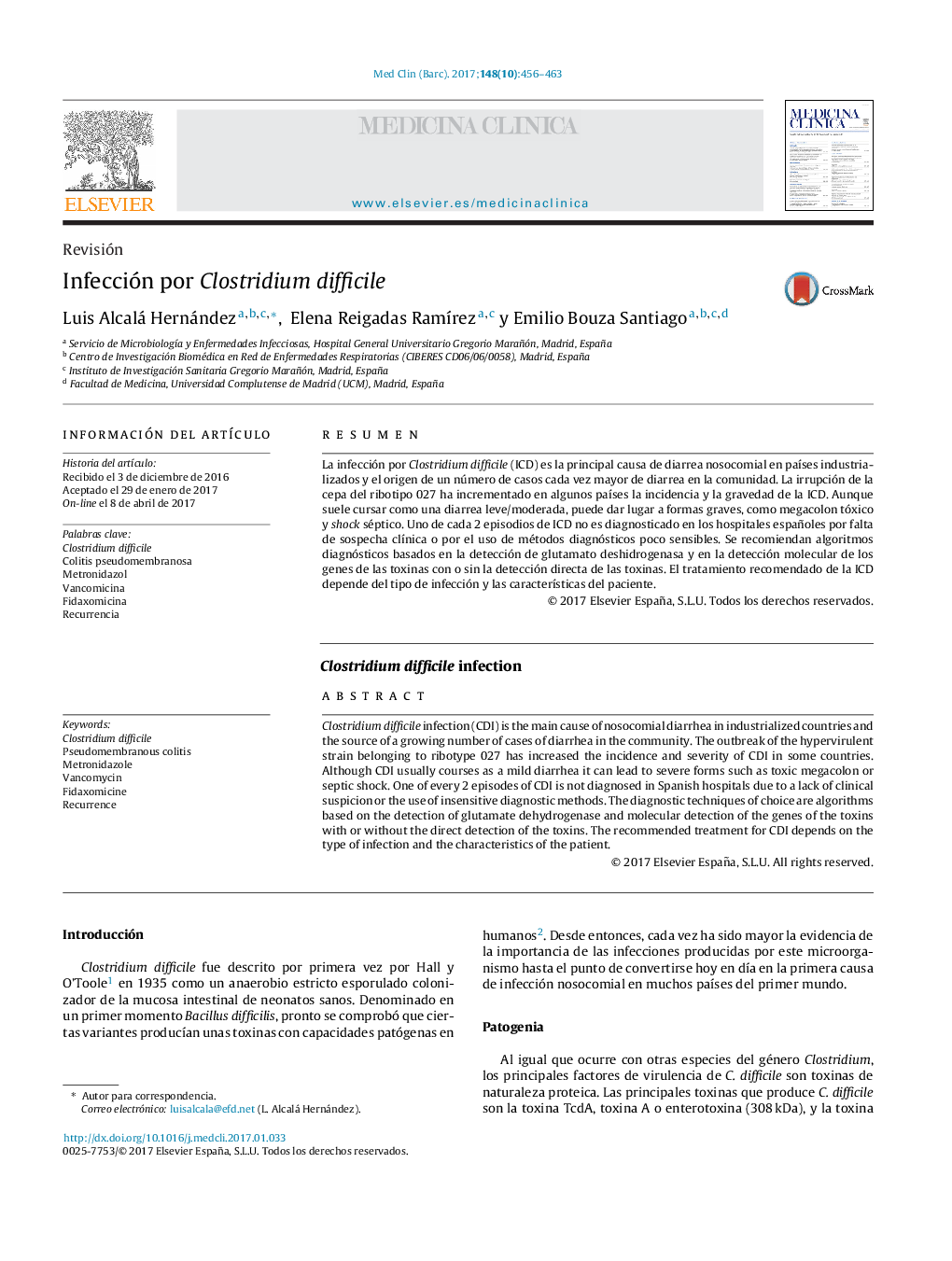| Article ID | Journal | Published Year | Pages | File Type |
|---|---|---|---|---|
| 5680607 | Medicina Clínica | 2017 | 8 Pages |
Abstract
Clostridium difficile infection (CDI) is the main cause of nosocomial diarrhea in industrialized countries and the source of a growing number of cases of diarrhea in the community. The outbreak of the hypervirulent strain belonging to ribotype 027 has increased the incidence and severity of CDI in some countries. Although CDI usually courses as a mild diarrhea it can lead to severe forms such as toxic megacolon or septic shock. One of every 2 episodes of CDI is not diagnosed in Spanish hospitals due to a lack of clinical suspicion or the use of insensitive diagnostic methods. The diagnostic techniques of choice are algorithms based on the detection of glutamate dehydrogenase and molecular detection of the genes of the toxins with or without the direct detection of the toxins. The recommended treatment for CDI depends on the type of infection and the characteristics of the patient.
Keywords
Related Topics
Health Sciences
Medicine and Dentistry
Medicine and Dentistry (General)
Authors
Luis Alcalá Hernández, Elena Reigadas RamÃrez, Emilio Bouza Santiago,
